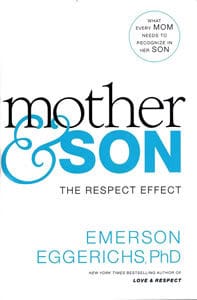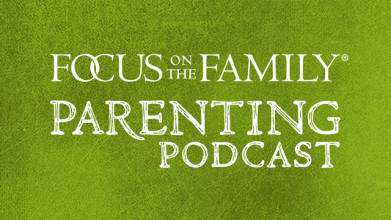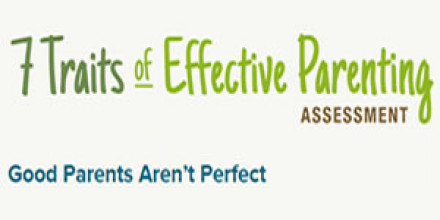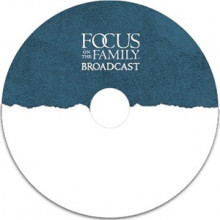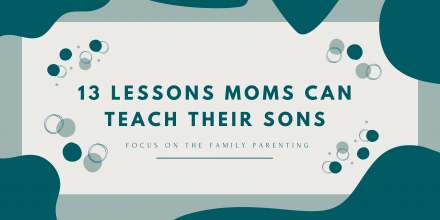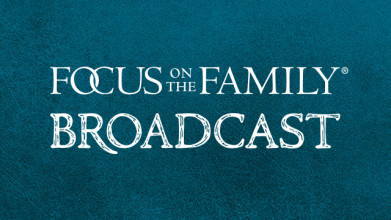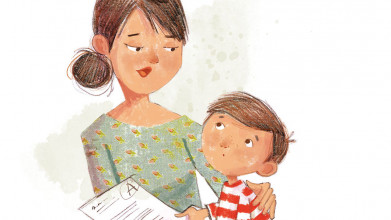Preview:
Dr. Emerson Eggerichs: So a mother just has to step back. Is there any vocabulary word that I’m using that would cause my son to think that I don’t respect him, that I have contempt toward him, that I despise who he is, that I find him unacceptable as a human being, that he’s less than he ought to be?
End of Preview
Jim: Yeah.
Dr. Eggerichs: Um, and those are the words that we need to refrain from.
John Fuller: Such great insight from Dr. Emerson Eggerichs. He’s our guest today on Focus on the Family and has some helpful advice for moms to strengthen your relationship with your son. Your host is Focus president and author Jim Daly, and I’m John Fuller.
Jim Daly: Uh, John here’s a headline for us all. Uh, it’s easy to forget that you’re actually raising a man, not a boy, and that someday he’s gonna leave home and start his own life, that’s the point. As a father of two grown sons, uh, I know how quickly the time passes and they begin making decisions on their own. And today we’ve tailored the broadcast for moms in particular. Uh, we want to speak to your heart and offer advice specifically to help you raise your sons to become those men you desperately wanna see. Uh, we’re coming back to a recorded discussion with Emerson Eggerichs, uh, about mothers and sons that has provided some great encouragement and instruction to our listeners in the past.
John: And I know Emerson’s gonna help again today. Now, he’s a popular guest here at Focus on the Family, internationally recognized as an expert on male female relationships. He, uh, speaks at conferences with his wife, Sarah around the world and he’s the author of a number of books, including Mother and Son: The Respect Effect. This conversation was recorded not long ago in our studio, let’s listen in.
Jim: Emerson, it’s great to have you back to Focus on the Family.
Dr. Eggerichs: I’ve been looking forward to it, Jim and thank you, John, yes.
Jim: You are really gifted at speaking right to the heart of people when especially in the area of marriage, obviously. Love and Respect has been really impactful to literally millions of people. And you now are applying those kinds of principles to the area of parenting, which I think is perfect. Why did you take that message of how you relate in marriage into the parenting relationship?
Dr. Eggerichs: Well, there are two levels of that. I wrote the book Love & Respect in the Family and, uh, looking at everything in the scripture, uh, concerning parenting, I had the privilege of studying the Bible 30 hours a week for nearly 20 years as the senior pastor of a church. So that gave me a lot of time to think and then of course, the academic bent, looking at what research said. So I waited though on the parenting topic until my children were grown. Jonathan, David and Joy are now adults and- and out of the home and, uh, I waited on that. But this more recent book, Mother and Son, it was Sarah, my wife, as well as the hundreds of women who went to our Love & Respect Marriage Conference, who began to apply these principles to their boys and began to email me, Jim and telling me what happened in the- the boy’s heart and the sense of connection they were beginning to experience as they began to apply what I call respect talk.
Jim: Uh, Emerson, you give credit wonderfully to Sarah, your wife, and the way you observed her interaction with your two sons. And, uh, speak to that observation that you had as her husband and the father of her boys.
Dr. Eggerichs: Well, and Sarah’s the one that really kind of put me onto this as she and I were doing the Love & Respect Marriage Conferences. She began to realize, you know, this really does apply to son. She was tracking as a mother there; I was thinking maritally. She said, “You know what? We need to bring this up early in the conference and say, how do you mothers want your future daughter-in-law to treat your precious baby boy?” Because they feel totally different about their boy than they do about their husband at that moment in time. And so Sarah really put me onto this. And so as I began to evaluate this, this book came out of that as particularly as mothers began to write us. But Sarah said two things that I said very quickly at the beginning of the book. She said, “If I had known this information when my sons were little,” Jonathan and David, two boys, she said, “they’re now in their thirties, I would’ve been a better mother.” And she’s encouraged mothers to really think about this because every mother wants to improve and she feels very deeply had she known this in their earlier years, it could have made a huge difference. But then she also encourages mothers, “As a mother, it is never too early and never too late to apply this message of respect.”
Jim: Well, let’s, uh, refresh or introduce that concept to the listeners who maybe didn’t catch those programs, Love & Respect or read your book on that theme. Talk about the general principle of love and respect and what you’re driving at when it comes to gender and what we need.
Dr. Eggerichs: Right. Well, the University of Washington studied 2000 couples for 20 years and they said, “We now know the two key ingredient for successful marriages. When those two ingredients are present, the marriage succeeds, when they’re not present, the marriages fail.” Many of us think that if we don’t have money problems, in-law problems, health issues, work related issues, these stressors, if we could remove those, we’d have a happy relationship. But they found out it’s our attitude toward each other during those conflicted moments that really is the key. So if I come across hostile or contemptuous to the spirit of the other person, that’s when they deflate, I’m stepping on their air hose. Well, I found it intriguing that Ephesians 5:33 said, husbands, love your wives and wives, respect your husbands. And the love and respect dynamic, there isn’t a whole lot of debate on that first part of that verse. But the second part women will say, “Dr. Emerson, I don’t feel any respect for my husband. He’s not superior to me, I’m not inferior to him. I don’t wanna be a hypocrite and do something I don’t feel, he hasn’t earned, he doesn’t deserve it. I’m not gonna give him a license to do what he wants to do. I’m not gonna return to male patriarchy and fear male dominance.”
Jim: (Laughs).
Dr. Eggerichs: I’m not going to subject myself to emotional abuse to lose a sense of my identity or self or set the feminist team back 50 years. But other than these things, I’m really a open to hearing what you have to say about this. (Laughter).
Jim: That’s a tough intro.
Dr. Eggerichs: Well, it’s what we’re up against.
Jim: Yeah.
Dr. Eggerichs: You see the- the disconnect between what women feel about honor and respect and what you and I as men feel, we serve and die for honor. We don’t see it as narcissistic. We honor each other and we die for each other. But when you talk about respecting a man, then that mantra that I just went through is what women feel. And they’re not mean spirited about that at all. Women are fearful that they’re going to be unloved in that process, that they’re gonna be second rate and second class. But once we begin to unpack the power of showing respect toward the spirit to a man, not respecting his bad behavior, when you come across honoring to the spirit of an individual, no husband feels fond feelings of love and affection in his heart toward a wife he thinks despises who he is as a human being any more than a woman is gonna respond to a husband who’s harsh and angry. There are certain vulnerabilities we all have, but we’ve kind of removed the male need from the radar screen. And so we put it back on to say, if you wanna motivate your husband, the way in which you do that is by meeting a need he has, especially during conflict and watch what happens. He’ll connect with you; he’ll move toward you rather than withdrawal. 85% who stonewall and withdraw are the males. And he’ll stop doing that. He’ll stay engaged with you ’cause he thinks you’re using the topic as an opportunity to send him a message that you don’t like who he is as a human being. And these principles, these wives, Jim, began to apply it to their boys. And instead of these boys withdrawing and stonewalling and just shutting down, the boys were staying engaged. They were actually looking at their mother. They were actually responding. They were actually soft in that response and uh, the mothers were blown away by that.
Jim: How does that transform that relationship? And then we’re gonna get into that very specifically. But at the top level, when a mom is, um, supplying that- that son with that respect, what is being achieved? How is that response? What does it look like?
Dr. Eggerichs: Well, I define it as a positive regard toward the spirit of your boy when you’re spitting mad at him. And one of the things that I want mothers to know is not to move into shame as they’re listening to this because mothers immediately begin to think of those moments where they’ve stepped over line, and I want them just to relax here. This is just an insight. In addition to your love, I want you to think about some vocabulary words that can soften him especially when you’re trying to get through to him. But in terms of the question you’re asking, it’s a positive regard toward his spirit. See, the gestures of contempt that the University of Washington study that females manifest, her eyes darken, face turn sour, hand on the hip, scolding finger, the sigh, the roll in the eyes, the head goes back, and when estrogen kicks in, the word choice of contempt is incredible. Women will fight with words. Okay. But I- I say to… you know, do you speak disrespectfully to your husband? Yes, but he should know I didn’t mean it. I will stop mid-sentence; he should know I didn’t. And in unison, all the women say, “mean it”, I didn’t mean it. And mothers don’t mean it toward their boys, but the way in which that boy is filtering that is mom is using this topic to send me a message that she doesn’t like who I am, she doesn’t respect who I am, and she finds me unacceptable. And I can give an illustration between how a mother would confront her teen daughter one night and the next night confront her teen son in the very same way and show you why there is a huge difference here.
Jim: Well, give it, let’s hear it.
Dr. Eggerichs: Well, suppose she’s- Tuesday night she’s upset with her 13-year-old daughter, and she’s got a 14-year-old boy and she comes, and she just rips in verbally to her daughter and they all go back and forth at each other. And then you’ll watch a few minutes later, they’ll both be on the bed, legs crossed and they’re going at it venting negatively. And- and then the daughters say, “I’m sorry, mom. I shouldn’t have said that.” Well, no, honey, I’m sorry. I was outta line. I’m re… will you forgive me? I shouldn’t have said it the way I said it. Well, yeah, mom, I forgive you. But do you forg- Yes, honey. Then they’ll hug, tear… wipe away their tears and then once witting, they’ll say something, they start laughing and they’ll hug and they’ll be good to go until that next episode, and they’ll do it again. Next night, she confronts her boy on the same thing, teen boy, and she comes at him, and he just shuts down and withdraws and looks angry. And so then what does she do? She ups the disrespect to get through to him until she sees tears in his eyes. And those tears are not there because he’s finally feeling her pain, it’s like he’s thinking, “My mom finds me disgusting. And even though I know mom loves me, I don’t think she likes me.” And particularly when he moves into his teen years where there may be some things that she’s discovered that shame him, now he’s filtering much of her behavior through those episodes that he feels ashamed about.
Jim: Tell me what that teen boy, uh, beyond what you just described, how does that shaming, uh, do really deep damage to that boy who then becomes a man? What is the lingering effect of that shaming?
Dr. Eggerichs: Well, I’m always cautious in that, uh, answering that because again, I don’t want that mother to feel like she has damaged her children. Mothers are very loving, very nurturing, very caring, and they care deeply. And they’re very quick to go to the fact that I’ve ruined my son, I’ve ruined my family, I’ve ruined heaven if I could ruin it, I’ve ruined everything. I’m horrible, I’m rotten. That’s what she begins to feel. So I’m… it takes a lot to really get a boy into deep shame. So what I wanna do is back pedal from that. But if every week you’re ripping into him over a 10-year period and basically communicating disgust… I just got a- an email and we’re getting all these emails, a single mother who adopted several children and her son’s gre- he’s very good at math, but he had a 65 percentile and she saw the report card and she said on the way home, “I was in…” She said, “I knew the barrage of words I was gonna use to get him to get his grades up.” But she’d just been listening to the audio on the Mother and Son: The Respect Effect and so she came in and she said, “Son, I don’t understand what’s going on here, I don’t wanna be dishonoring to you, I don’t wanna be disrespectful, but can you explain to me why you have these great abilities and why you have a 65% here? Can you help me understand this? Because I’m not pleased, but I’m not trying to dishonor you right now, but I’m upset because I expect more from you.” He looked at her and he said, “I will take care of it, mom.” And she says he studied and brought his grades up to 95%. And she said, “We did not have yelling, tears and regret,” yelling, which was her, his tears and then her regret. Yelling, tears and regret, we did not experience it. And she said, “I was absolutely blown away when I used the vocabulary word, ‘I’m not trying to diss you, I’m not trying to dishonor you. I believe in you; I don’t understand this. Can you solve this?’” And she said it was over with. But see the point there is, there are single mothers, as well as regular mothers out there that, you know, have a father, but they’re doing that kind of thing week after week toward their boy because he’s not performing so they feel they have to up the disrespect, they have to up the contempt. And over a period of time, he’ll just close off before he’ll probably begin to feel shame.
Jim: And in so many ways, what you’re doing with that approach is you’re raising the bar even higher and making them feel even more like a failure, that they can’t attain it. And so I love the approach. I love the thought of give them the responsibility, that’s what men appreciate, that’s what boys need to learn, and they’ll gravitate toward it. That’s what you’re saying.
Dr. Eggerichs: Hugely so. And we know in marriage, you know, the whole joke is women tend to be empathy oriented, but men are solution oriented.
Jim: Yeah.
Dr. Eggerichs: Men think in terms of solution, they try to help by solving it. Well, you can reverse that with your son and ask him, how is he gonna solve this problem? Appeal to him to solve the problem. You’re an honorable young man, this is unacceptable, I’m sure to you and to me, how can you solve this?
Jim: Yeah.
Dr. Eggerichs: Rather than telling him to solve it, ask him and watch what happens.
Jim: Right. And- and then step back, let him-
Dr. Eggerichs: Allow- allow.
Jim: Um, Emerson, you talk about that crazy cycle. Uh, you talk about that in marriage with love and respect, you’ve brought that thing, you’re describing it. I don’t know that you’ve used the term yet, but make sure that we understand the vocabulary of the crazy cycle.
Dr. Eggerichs: Right, right.
Jim: You described it with the mom and the teenage daughter, that they’re fine until their next eruption. That’s the crazy cycle, right?
Dr. Eggerichs: Well, the crazy cycle that we talk about between husband and life is without love, she reacts in ways that feel disrespectful to him. She’s not trying to be, that’s how he processes that conflict. When a man feels disrespected, he ends up reacting a way that feels unloving to her like stonewalling, pulling back. And that same dynamic happens between a mother and her son. They’re not married, but it’s a male, female issue far and above being a husband-and-wife issue. And as that boy moves into manhood, mothers and sons get on that crazy cycle and, uh, we’re coaching mothers on how you can jump off of that much more quickly.
John: This is Focus on the Family, and our featured guest today is Dr. Emerson Eggerichs. And we always appreciate having him and the wisdom he shares. His great book is called Mother and Son: The Respect Effect. And you’ll find that and a CD or download of our conversation at focusonthefamily.com/broadcast. Or call 800, the letter A, and the word FAMILY. 800-232-6459. Let’s continue the conversation with Emerson Eggerichs.
Jim: Emerson, uh, you mentioned this respect talk back and forth. Why do you think moms, women, struggle with that concept so much? I- is it the root that they’re seeking love, their language is love and you’re saying your sons aren’t gonna understand that love is something not as critical to them?
Dr. Eggerichs: Well, it is critical, boys need love. They tend to be as assured of a mother’s love. I mean, you ask a teen boy, does your mom love you? Oh yeah. Well, she.
Jim: Of course, she does.
Dr. Eggerichs: Yeah, exactly. Like you, no, she didn’t like me right now.
Jim: (Laughs).
Dr. Eggerichs: And so and mothers will say, “I love my son, but I don’t like him right now.”
Jim: Yeah.
Dr. Eggerichs: And mothers feel guilty about that. And so this… and we need to clarify, love and respect are not synonymous. You know, we respect our boss, but we don’t love our boss. And uh, you know, we love our teen boy, but we don’t always feel respect for him. And so they cross over, but they’re not synonymous. And what we have to look at is the fact that God has wired men to need something that mothers don’t always track with in this culture at this time. But God designed mothers to love, women love to love. You have to wound a woman at the level of intimacy to get her to stop loving. Uh, but she is, uh, this nurturer, the caregiver, and she just is energized to love, she wants to do that. But what she doesn’t always understand is that she can communicate in a way that feels disrespectful to her boy. She can be motivated to do the loving thing, but it comes across very disrespectful and that’s why she doesn’t always see it. And I don’t know why as a culture, we haven’t paid closer attention. Instead, we seemingly have put the onus back on the boy who is shutting down that there’s something inherently wrong with him rather than maybe just stepping back for a moment and saying, could we just say a few things differently? So for instance, if she’s really upset and she’s just spitting mad and just… You know, I say, you don’t have to become robotic or mechanical this way, you be yourself. But you say, “I’m very upset with you right now, I can’t believe that you disregarded what I told you to do, and I was very specific. And I even let a note. Now I’m not trying to say this to diss you or dishonor you. I believe in you more and I think you believe in yourself, and I see you becoming an honorable man. But for the life of me, I can’t believe why you did that. I don’t respect what you did, but I respect you. Now we gotta take a five-minute time out because I think I’m gonna kill you right now and we’re gonna come back and visit this respectfully. Does that sound like a good game plan?” A lot of times a boy will grin. If he’s never heard that kind of vocabulary, he will actually look at mom. And it was same thing if a father says, “I don’t know how to do this loving thing. You know, my father didn’t love and I- I’m trying to be more loving to use my tender daughter. I would die for you. I can’t believe what you did here. How do I do this lovingly? I don’t know how to be as loving as I ought to be. I feel horrible as a- a man who doesn’t know how to love, but I’m so spitting mad. We need to take a time out. I wanna do the loving thing here, but I don’t know how to do it and I’m so mad.” I mean, every daughter would probably start to grin at that if he’s never done that before.
Jim: What’s so right about what you’re saying is you’re affirming the child as a person as someone created in the image of God without embracing the behavior which you have to deal with.
Dr. Eggerichs: Always. We do not respect bad behavior, that’s stupid.
Jim: (Laughs).
Dr. Eggerichs: We don’t love, uh, unacceptable behavior, but we lovingly and respectfully confront that behavior.
John: E- even as you’re going through that kind of script of how it could be Emerson, does a boy really hear a mom talking as you just did and think she respects me? ‘Cause I mean, the tone of what you said could be taken by some to mean she really hates me right now. I just blew my life apart.
Dr. Eggerichs: Yeah, it could be. But my experience is no, same thing with a football coach who’s sitting mad in the locker room-
Jim: (Inaudible].
Dr. Eggerichs: … that we’re behind 14 points, I expect more of you guys, you guys are the greatest athletes I’ve ever coached, I can’t believe where we’re at now. But you know it… Do boys suddenly think, “oh, the coach hates us.” So again, vocabulary is why this is so exciting. And the point there is mothers don’t have to suddenly become something they’re not. You just need to add a few vocabulary words that I’m talking about so that he knows that the real reason here for you confronting him is the behavior, not that you’re using this topic as another opportunity to send a message that you find him despicable as a human being, ’cause that’s what he’s feeling, particularly if he’s failed or he is feeling inadequate.
Jim: Yeah.
Dr. Eggerichs: And we need to quote Shaunti Feldhahn’s research of the 400 American males that decision analyst out of Houston did and they ran it again ’cause they were blown away by the stats. And Shaunti called me and said, “Hey, here’s one of the questions I’d like to include. Do you think I should do it?” And I said, “Absolutely.” And the question was this, would you men rather be left alone and unloved in the world or be viewed as inadequate and disrespected by everyone? Almost 75% of the men said they’d rather be left alone and unloved in the world. So we have to refrain from this message. Do not say to a man, “You’re inadequate as a human being and I don’t respect you because of it.” You can say, “What you did was inadequate, and I don’t respect what you did.” But that’s conduct unbecoming of who I really believe you to be. Just that way of saying it can take that relationship and turn it completely around.
Jim: Well, let’s, uh, unpack some of those vocabulary words that you’re mentioning. And you’ve done some of that, but what are some of those buzz words that mom should refrain from using and maybe get rid of them out of their lexicon when- when it comes to dealing with your son?
Dr. Eggerichs: Well, I mean, just as we would say, no father should use any kind of vocabulary that suggests that he hates his daughter, right? I mean, is there any vocabulary word that a dad may be using that would suggest that that daughter’s going to hear that you really hate me? And if there’s any message that he sends that is that. So a mother just has to step back, is there any vocabulary word that I’m using that would cause my son to think that I don’t respect him, that I have contempt toward him, that I despise who he is, that I find him unacceptable as a human being, that he’s less than he ought to be?
Jim: Yeah.
Dr. Eggerichs: Um, and those are the words that we need to refrain from. But I still give a lot of grace to a mother who blows it just as long as she comes back and said, “Look, I wasn’t trying to dishonor your heart. You’re created in the image of God, and I believe in you son. And that’s why I’m so upset. I sometimes don’t think you believe in yourself as much as I believe in you.”
Jim: Huh, yeah, that’s good.
Dr. Eggerichs: See, that’s the way you rebound.
Jim: Uh, countless moms, uh, will contact Focus on the Family here. I mean, we get this a lot and they’re saying basically, “Listen, um, my son needs to earn my respect.”
Dr. Eggerichs: Mm-hmm.
Jim: Um, describe that environment and is what she’s saying accurate or is that something you give, you don’t earn it, it’s something that your son, uh, deserves from you even if they’re behaving inappropriately?
Dr. Eggerichs: This is a cultural teaching that respect must be earned, respect must be deserved. And if they have not earned it, they don’t deserve it and I’m not gonna give it. And I always say that’s- that’s understandable, we all feel that. It would be better to say we earn the respect in some ways on the behavior if we’re you know doing well, you know, we’re honored, we get honored for things that we do so there’s a performance component to it that all of us would agree with. However, let’s just think for a moment. So now your son does not earn… hasn’t earned it, he doesn’t deserve it. What’s the logic of this? Where are you gonna go with this? So now you’re gonna say he deserves your disrespect, he deserves your contempt, he deserves you to say he’s despicable, he deserves that you say that he’s inadequate. So if you bring this to its logical conclusion, then what you’re saying is I can show contempt toward him all day long because he doesn’t deserve it. And I’m gonna say that is one of the biggest mistakes we could ever make with any human being, ’cause no human being responds to contempt. So what the mothers are basically saying is I’m not feeling that respect toward him because of his misbehavior. That’s correct. We’re not asking you to feel respect, what we’re asking you is respectfully confront that which he’s done that’s not respectable. ‘Cause if you don’t, if you show contempt toward his spirit, that’s the same thing as a father showing harshness and anger toward his daughter because she’s not performing at the level that he wants but as a result of his harshness and anger, she starts, you know, performing at the level that he wants. But you’re gonna lose her heart and you’ll lose your son’s heart if you continue to show contempt. So we have to then talk about unconditional respect being equal to unconditional love. And what are we talking about? God calls the husband to love his wife unconditionally. That doesn’t mean honey, you know, I know you’re committing adultery with the neighbors, so just continue on ’cause I’m gonna show you that I’m unconditional my love. We say that’s stupid. Unconditional doesn’t mean you give another person license to do what they want, unconditional love means there’s no situation, no circumstance, no condition that can get me to ever hate you. I love who you are. What you’re doing is unacceptable, but there’s nothing you will ever do to get me to hate you. Unconditional respect is an oxymoron. We all understand unconditional love, but it’s a contradiction of terms when you say unconditional respect. But unconditional respect means you say to your husband, you say to any human being, you say… This doesn’t mean it’s easy, it just means this is true. There’s nothing you can do, there’s no condition, there’s no situation, there is no circumstance that can get me to show you contempt for who you are as a human being. Why? Because this is who I am as a person. This isn’t about who you fail to be as a person. I’m gonna be a loving soul, whether you’re lovable or not. I’m gonna be a respectful human being as a mother, I’m gonna be a woman of dignity who communicates respectfully even though what you’ve done is not respectable.
John: So where does a mom who feels that her son hasn’t earned respect or that he’s so disrespectful she can’t possibly meet him there, how does she start to get out of that?
Dr. Eggerichs: Well, again, this is why the methods that she’s been using, we ask, are they working? See, this is why I think so many mothers are frustrated with their boys and the implication of this is staggering. So I’m not here to say that the way she’s approaching it may be totally wrong ’cause I can’t speak to every situation. But if her son is pulling away from her and she knows that, and women intuitively know that, then just try this. Uh, don’t do it as a theory. I believe God and his word, and the best research is pointing out, this is meeting another person’s need, you’re meeting your son’s need and you’re not losing power. And one of the first questions most mothers say, “Well, I need him to respect me.” Yes, honor of father and mother. And I wrote 300 pages in the Love & Respect Family book that addresses that, all about how to get your son to honor and respect you. But the other side is you’ve gotta understand if you’re gonna expect him to honor you, then you can’t dishonor him to motivate him to honor you. And what does it mean then as a mother to come across in a respectful, honoring way as a model of the very thing you’re expecting and paying attention to the innocent ways that you come across in these gestures of contempt? Because I say if you misrepresent your deepest heart, he’s gonna misinterpret your deepest heart.
John: So it’s probably a good idea to- to kind of stop the cycle when you’re not in it, right? I mean to be proactive about it.
Dr. Eggerichs: I think that Sarah and I get on the crazy cycle in our marriage, and we have to, uh-oh, we’re getting in the crazy cycle. You have to at least identify what’s going on here so that you can call a time out like I did with the- that mother, you know, saying, “Let’s take a time out here.” Because otherwise you’re suddenly gonna realize the issue is no longer the issue. And that’s the problem. Once we get into that point where your spirit is deflating as a mother and his spirit is deflating, now you’re probably on that crazy cycle. You’re feeling unloved and disrespected, now you’re gonna react in a way that probably feels disrespectful to him. And when he feels dissed as a young boy, he’s gonna react in a way that feels unloving to you. And he’s gonna probably just shut down ’cause that’s the way he’s protecting himself. He’s not trying to be disrespectful toward you, he’s guarding his heart.
Jim: Mm-hmm. And you want to get out of that crazy cycle because the damage long term will be tough. And this is why we’re talking about it today, Emerson (laughs). Man, it has flown by, uh, because of, uh, I think the interest here… I mean we’re three guys talking about it, but I think many, many moms have leaned in to say, “Help me do this better.”
Dr. Eggerichs: Yes.
Jim: I can feel it.
Dr. Eggerichs: Yes.
Jim: And uh, we need to keep going and uh, come back next time and talk more about this great work that you’ve put together, Mother and Son: The Respect Effect. Uh, you have tapped into what I believe is spiritual truth here with the love and respect message right out of Ephesians. You’ve got it and now you’re applying that to the parenting role, and I think it is right on the money. So it’s been great. Let’s come back, have more discussion about it next time. Can we, do it?
Dr. Eggerichs: Love to.
John: We’ll invite you to get a copy of Emerson Eggerichs’ book Mother and Son: The Respect Effect, uh, when you get in touch with us here at Focus on the Family. And then we also have a CD or download of this program to listen to again, or to share with others and additional parenting helps always available. Our number is 800, the letter A, and the word FAMILY. 800-232-6459 or stop by focusonthefamily.com/broadcast. And we also have a link to a free parenting assessment. Uh, that is so helpful, be sure to take a few minutes and check that out.
Jim: And John, I wanna ask our friends to support this ministry. It’s an invitation to be part of it. And uh, we need your partnership to help us serve parents every day through our broadcast, podcast, magazines, counseling, and so much more. With a gift of any amount, we’ll say thank you, uh, by sending you a copy of Mother and Son: The Respect Effect.
John: Join the support team donate as you can and request that book when you call 800, the letter A, and the word FAMILY. Well, thanks for joining us today for Focus on the Family. On behalf of Jim Daly and the entire team, I’m John Fuller, inviting you back tomorrow. We’ll hear more from Dr. Emerson Eggerichs as we once again help you and your family thrive in Christ.












